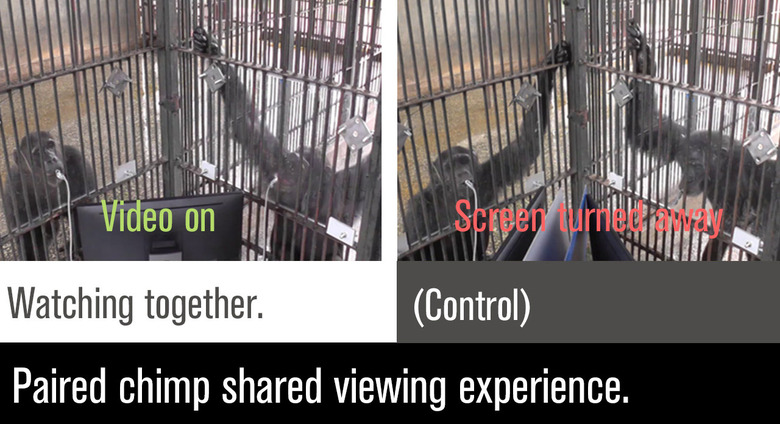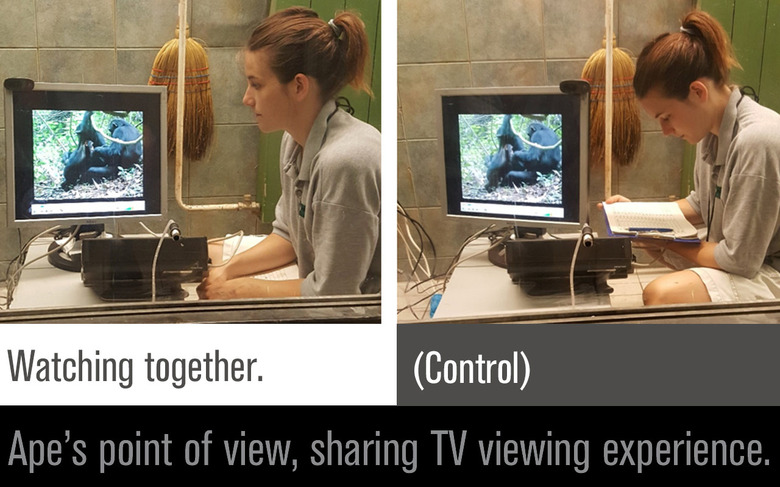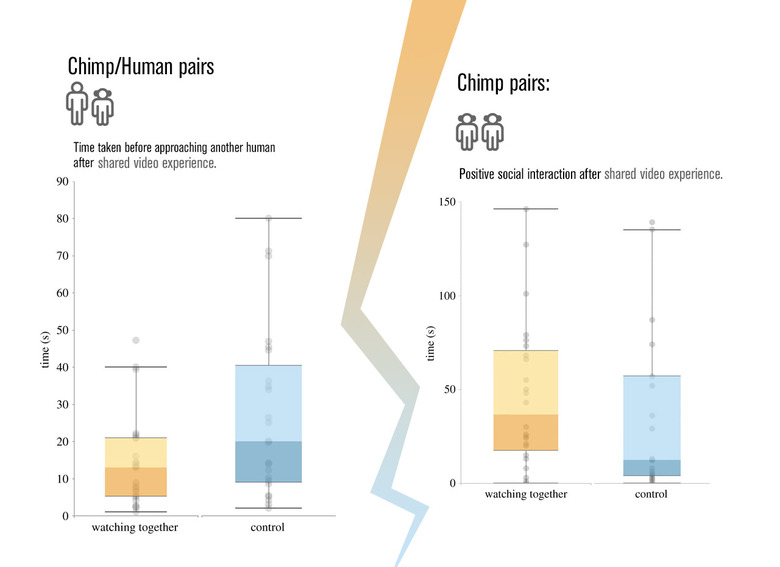Human Test Makes Chimps Watch TV Together, Chimps Become Friends
A certain level of bonding occurs between human beings when they share an experience together. This might seem obvious – it should, if you've ever experienced anything significant in your life with a person who is now a good friend. The study published this week in the journal Proceedings of the Royal Society B showed how this bonding is deeply rooted in our evolutionary history – by making chimps watch TV.
The concept of "social closeness" is one studied in a paper published this by The Royal Society Publishing. The authors, Wouter Wolf and Michael Tomasello, sought information on the depths to which our ability to experience social closeness through shared experiences was enabled through our evolutionary history. To do this, they sought out a few great apes and asked them to watch a bit of TV.
It was previously thought that social closeness attained through shared social activities both great and small was a "uniquely human" behavior. Eye-trackers and video cameras were used to attain answers. The study placed diluted grape juice and a "custom-made juice tube device" in a study area to keep participants in the study "relatively stationary."

Videos were played, and subjects were tracked. Subjects included nineteen chimpanzees (Pan troglodytes) and seven bonobos (Pan paniscus). OF NOTE: All of these test subjects had "previously engaged in social and cognitive experiments with humans" before these trials. Humans were also included in the test as partners to the apes.
Part of the study showed that pairs of chimps who sat and watched a video later spent more time together outside of the video portion of the test. They were observed later to spend more time grooming one another (a clear sign of positive social interaction) than those who did not share the video experience.

Another part of the study showed that study subjects that'd been paired with humans later approached those humans faster than their control counterparts, after the video was shown. Results pointed toward apes finding themselves socially bonded with their human test subject counterparts to at least some significant degree.
While long-term studies of the effects of these shared experiences are still needed, early results are shown quite clearly. As the study concluded, "The current results demonstrate that on a basic level, socially relating to others via shared experiences seems not to be uniquely human but instead deeply rooted in our evolutionary history."

The study we worked with today can be found under the title "Visually attending to a video together facilitates great ape social closeness" and, yes, it is British. That'd explain the "attending to a video together" instead of something like "watching a movie" we might have expected if the study were written in the USA.
This study was authored by Wouter Wolf and Michael Tomasello. The paper can be found with code DOI:10.1098/rspb.2019.0488 as of July 17, 2019, in Volume 286 Issue 1907 of Proceedings of The Royal Society B / Biological Sciences.
